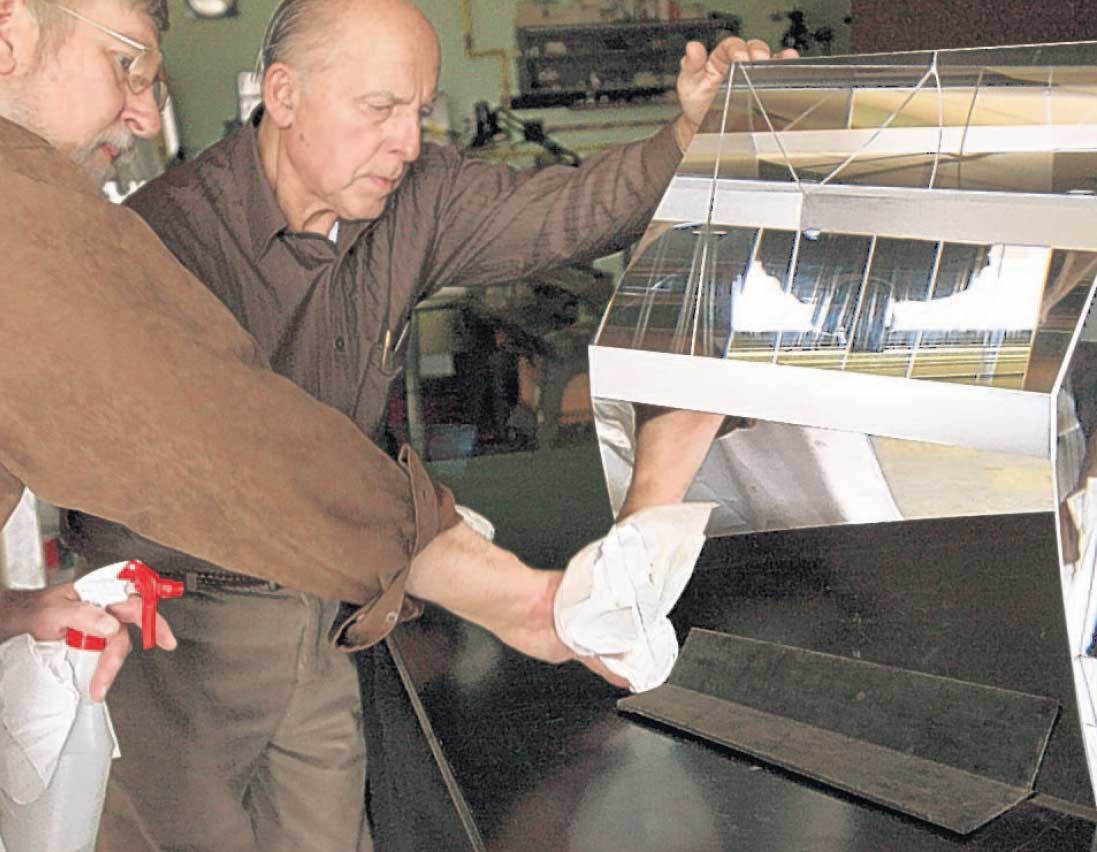 Cosmo Optics, Advanced Glass Industries, EMF and Corning collaborated on a project to help scientists study the smallest building blocks of matter and test the fundamental theories of physics.
Cosmo Optics, Advanced Glass Industries, EMF and Corning collaborated on a project to help scientists study the smallest building blocks of matter and test the fundamental theories of physics.
Cosmo Optics in the Town of Wallkill, NY has done the fine detail work to turn a 256-pound chunk of flawless fused silica — quartz — into a prism for particle physics experiments by the Stanford Linear Accelerator Center and French and Italian scientists, part of a larger project known as Super B.
The prism — the first of its kind — will be part of a novel camera optics and detector concept designed by SLAC scientists. The new equipment will be just one -twenty-fifth the size of existing technology and 10 times as fast.
“If this works — and I believe it will — this makes everything else obsolete,” said Hans Peters, president of Cosmo Optics.
State plays key role in project
The prism and a smaller one produced by Cosmo will be used far afield — the experiments will be done in Italy — but the crucial element is entirely a product of New York state, Peters noted. The solid block of quartz was manufactured by Corning Glass in Canton, and the materials alone for that cost just shy of $90,000 because of the high level of purity required for the experiments. The rough shaping was done by AGI in Rochester. Aluminum coating for some of the prism surfaces was done by EMF Corp. in Ithaca.
Then the Cosmo crew took over, refining the block to meet the exacting standards set for the prototype by the SLAC designers and physicists. It’s detailed work, with little room for error.
“It’s super-polished,” Peters said. “No scratches, no hairlines, no dings. And of course, no flaws in the material itself.”
Effort proves time-consuming
The project has consumed between 250 and 300 man-hours at Cosmo for handling, grinding, polishing and rechecking.
“Even to move it, to work on another part of it, took sometimes two days,” Peters said.
Cosmo has done work for SLAC before, as well as for government agencies and other labs. The company specializes in high-precision work for limited-production and prototype orders. Cosmo is also working on three sets of 10 large lenses each for a project out of National Security Technologies and the Los Alamos National Laboratory.
“Again,” Peters says. “It’s a prototype.”
© 2011 Times Herald-Record/Dow Jones Local Media Group
